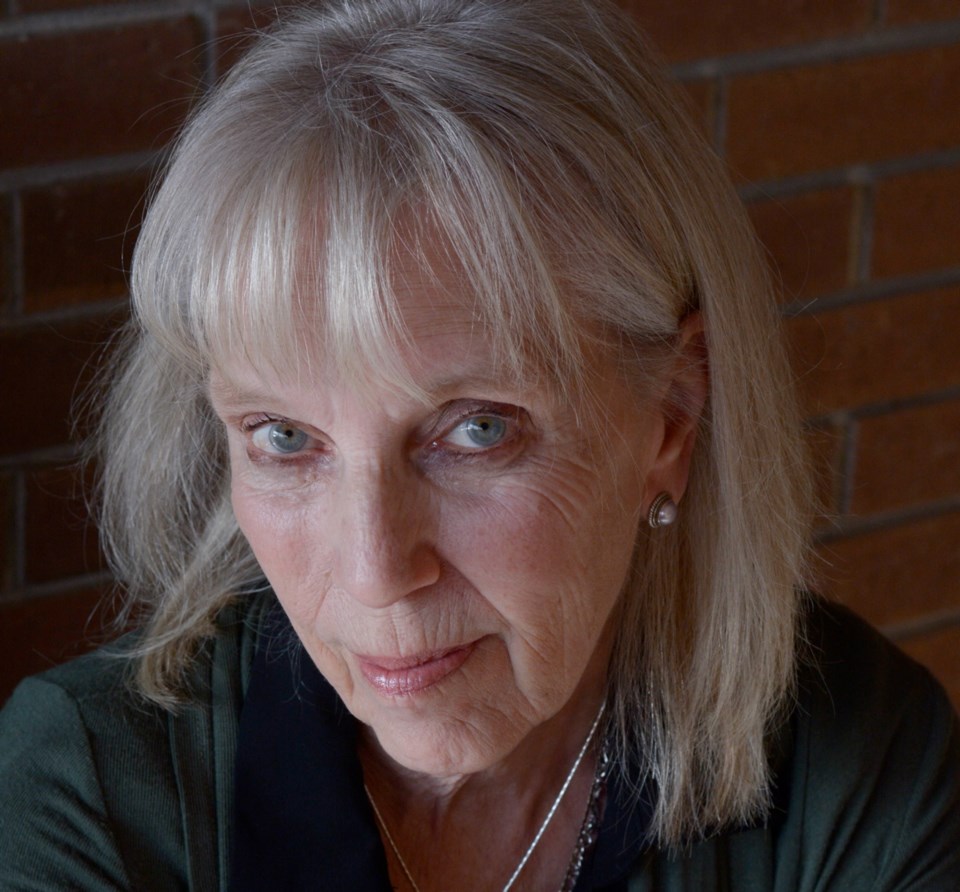My sole recommendation for summertime reading is M.A.C. Farrant’s latest book The World Afloat.
Why? It’s the perfect beach or sundeck read. The book is 75 short pieces or “miniatures” as the North Saanich writer calls them. These mini-opuses are witty and quirky. They’re sometimes funny, sometimes surreal and always sharply observed.
By peeping at life from the margins — and ignoring the deep wagon tracks of traditional narrative — Farrant emerges as an original voice conveying something compelling and true about what it means to be human.
What’s more, The World Afloat sells for a bargain $12.95 — so the price is miniature, too. Plus, being only slightly larger than a pocketbook, it fits neatly into one’s hands.
Farrant’s humour is often subtly subversive and satirical In her story The Day is Old Enough to Have Complications, she speaks of bored clerks in the Bay’s menswear department, adding: “That’s where old men in beige slacks go to die.”
The Favoured Form skewers modern society’s tendency to fetishize those with disabilities or illnesses:
The burn victim with the scarred head and face and with/ a hole where his left ear should be has won the TV dance/ contest, beating out the celebrity two-hundred-and-/ seventy-one pound transsexual with a heart condition/ and the woman whose arm and leg were severed in an / elevator accident.
The World Afloat communicates a delightful, rather un-Canadian sense of the surreal. In Everyone’s Life Is a Labyrinth, Farrant writes of attending a party only to find cabbages growing in a closet and “live tomatoes hanging like streamers from the ceiling.” In another tale, Uncle Ernie spends years wrapping bits of foil into silver balls. It reminds me of Sherwood Anderson’s story Paper Pills, in which a doctor forms paper scraps into little balls or “paper pills.”
To create The World Afloat, Farrant set out to write one short piece every day for a year. She kept it up for 101Ú2 months — what appears in her new book is the best of this bunch.
“[Writing] it was like being in the middle of a storm,” said Farrant, interviewed in a Sidney coffee shop. “It’s just something you do. I made myself do it.”
Her aim was “to see what I could do with a narrative crossed with a prose poem, crossed with a joke.”
Farrant deliberately opted for a light-hearted tone of The World Afloat in contrast to her last book, which was “pretty heavy going.” The Strange Truth About Us (2011) is an imagining of the climate-changed world of the future. In one section, a retired couple living in a gated community sip martinis and imagine what fresh hell lies ahead.
The Pulitzer Prize-winning writers James Tate and Charles Simic are each quoted in The World Afloat. Tate’s surreal, absurdist poems are an influence on Farrant. So is Simic, renowned for his minimalist poetry.
The novelist Leon Rooke was an early influence. As an emerging writer in her 30s, Farrant studied with Rooke, then teaching at the University of Victoria. He did two important things: (1) he recognized her talent (she got an A-plus in his class) and (2) he encouraged her to experiment.
“He was wonderful. He just told me to go crazy. We connected immediately,” Farrant said.
She’s writing a new book that — at least in form — will be similar to The World Afloat, although this time she won’t stick to the one-a-day writing regime.
As a writer, Farrant says one of her overarching goals is clarity. She wants to provide the reader, as much as possible, an unobstructed path to her thoughts.
“I really believe when you’re reading somebody, you’re reading somebody’s mind, in a sense,” she said. “I’m trying to keep it fresh. I’m trying to interest myself.”



